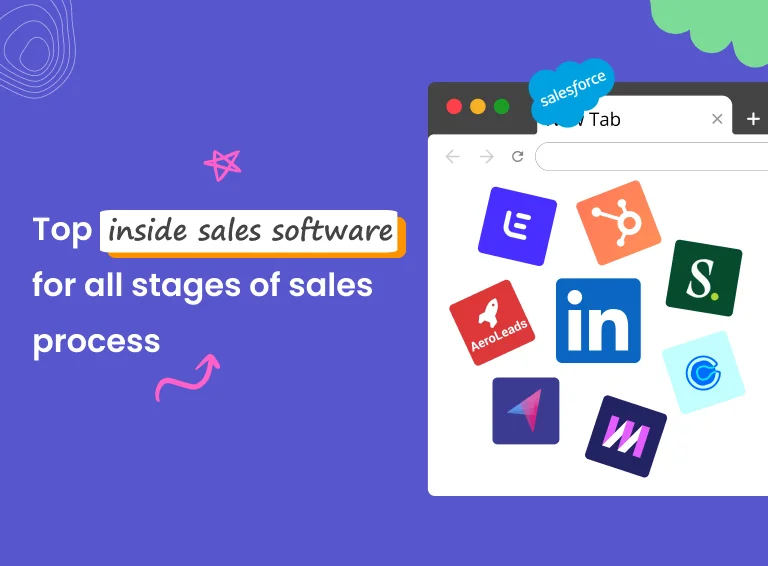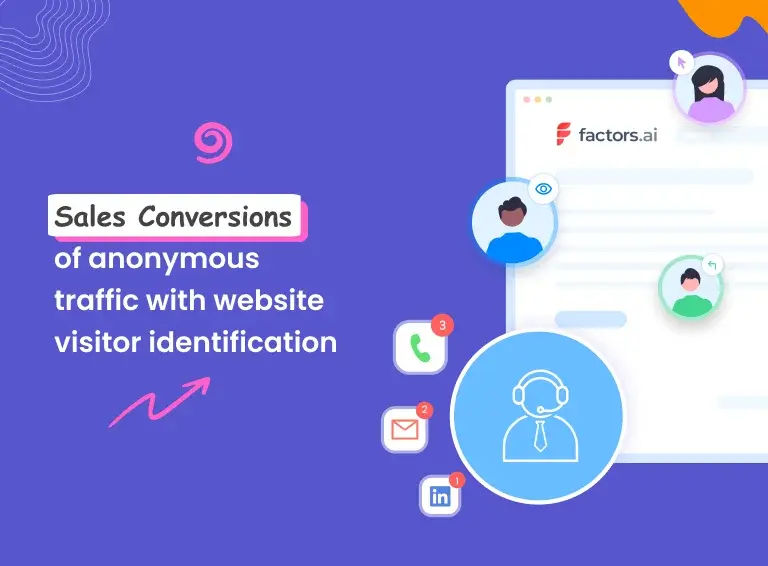“I’ve got a feeling, a feeling I can’t hide”
Like these words sung by The Beatles, many in the United States are no longer able to hide their anxiety over a recession — before it has been declared officially.
According to a survey on consumer confidence, 58% of Americans think that the U.S. economy is already in a recession. Another survey of 750 CEOs and other C-suite executives across the globe found that over 60% of the top executives expect a recession in the next 12 to 18 months in their respective regions and an additional 15% think that the recession has already begun where their firm is located. Other estimates suggest the U.S. could either face a recession by 2024 or it is already facing one.
Right from the Great Depression of the 1930s, there’ve been over a dozen recessions in the U.S. including the two-month COVID-19 recession in 2020, the Great Recession in 2008, and the dot-com recession in 2001. A lot of businesses went bust, but a lot of businesses also survived and thrived during and after these economic downturns.
The survival didn't happen by chance; the businesses pivoted when necessary and changed their strategies to ride over the recession. Companies that are flexible and ready to adjust will be able to navigate any economic downturns successfully.
So, whether a recession is imminent or it’s already here, the question is: How do you change your sales strategies to survive this economic downturn?
We spoke to sales leaders and C-suite executives in various industries to get the answers. Before getting into sales strategies, let’s take a look at how the economic downturn has affected sales.
How Has This Economic Downturn Affected Sales?
During an economic downturn, businesses experience a dip in sales as consumers tighten their spending. C-suite executives say that their customers have been adversely affected and that they are experiencing more-than-usual customer churn as a result of the current economic downturn.
Impact on Customers
Many businesses across the U.S. see that their customers see that the slowing economy has already affected their customers in a multitude of ways.
- More and more customers default on payments
Mike Walsh, CEO of CloudMyBiz, a cloud-based technology solutions firm that builds custom solutions built on the Salesforce platform for companies across North America, says that his business has seen an increase “in the number of customers who are defaulting on their payments and delaying payment terms.” “We also have seen a decrease in new customers signing up for services, which means that we need to find new ways to reach out to potential clients,” he adds.
- Uncertainty over affordability
With the economic downturn causing customers to face a decrease in sales, Joshua Rich, CEO and founder of Bullseye Locations, a dealer locator software, is not sure whether his customers will continue to be able to afford his software. “They are not making enough profit to be able to continue with my business's locator services,” he notes.
- Lack of accurate demographics
Another impact of the economic downturn seems to be the inability of businesses to get accurate demographic information for sales. Dan Shepherd, CEO, and owner of VEI Communications, a communication rentals and technology services company, attributes this to customer activity being “highly volatile” in the present economic climate.
Uptick in Customer Churn
Some businesses also report a recent increase in their customer churn, which they attribute to the current economic downturn.
Rich says that the ”slight increase in customer churn” that his firm is experiencing is because of his customers not generating enough profit “to even be able to afford the same price offered on my services.”
On the other hand, Dan Shepherd says that his business is facing a “drastic increase” in customer churn. “Pricing is everything nowadays and it means that customers usually prefer brands that offer the same product at a lower price.”
How Should Your Sales Strategy Change To Ride the Downturn?
1. Be Clear on Who Your Ideal Customer Is
Leslie Venetz, the founder of Sales Team Builder and 3x Head of Sales with over a decade of experience in sales, says SaaS firms must be clear on who their ideal — not qualified — customers are during this economic downturn, she says. “Who is going to buy fastest, at the highest investment, and renew most often? Build ABM (account-based marketing) strategies for those key prospects. Once they are onboarded, ensure you've enabled your Customer Success Team to take a proactive approach to retain their business when budgets get tight.”
2. Don’t Be Quick To Give Discounts
For SaaS companies, offering discounts on their products could turn out to be a race to the bottom, as it sends the message that you could have offered a lower price earlier and that your product isn't worth what you were asking, Venetz asserts.
"Should SaaS companies ensure that their pricing remains competitive and make adjustments to match market conditions? Yes.
Should they be quick to give discounts? Absolutely not.”
3. Ensure Smarter Segmentation of Customers
To utilize the sales team efficiently, Venetz suggests SaaS companies ensure that the segmentation process of their customers, particularly inbound leads, must be done in a way that does not waste the time of sales reps or wastes valuable leads.
Sales leaders in SaaS firms could come up with a system to make it easier for well-qualified leads to route directly to account executives without being forced to have a conversation with a sales development representative first. In the case of unqualified leads, they could be routed directly to a nurture campaign with an automated demo, she suggests.
“The basis is, how can you get your leads the information they need as quickly as possible without allocating your human resources (sales reps) to conversations that have a low probability of turning into customers.”
4. Put a Pause on Price Increase
Businesses should try to not increase the price of their products/services amid the economic downturn as part of the sales strategy. “Increasing prices will cause me to lose customers, which will do the same damage as not changing the prices, hence I go with the latter,” says Joshua Rich, who has kept the price of his locator software the same.
“This strategy has helped me retain my existing customers and even gain more. By maintaining the same prices, my brand is able to create value by establishing itself as loyal to its customers.”
5. Cut Down Costs
In these tough times, cutting down on some operational costs might be inevitable for businesses. Hence, the focus should be on using fewer tools as you can cut down on the monthly subscription costs for these tools and software.
Another way of cutting costs is using third-party tools that are less expensive in the place of expensive customized tools. Shepherd says that he has resorted to using third-party software for his weekly sales analysis. “We are used to having custom tools and software for our performance metrics. Relying on a local forecast analyst has made proceedings difficult, but we are trying to manage by investing in automation,” he adds.
6. Use Predictive Sales Analytics
Predictive sales analytics involves interpreting sales data using technology to identify patterns in the behaviors of customers and using it to make sales predictions. These tools might become a crucial part of your sales process, given the uncertainty in the economy.
“I used predictive analytic tools to forecast the future market trends and custom-tailored our tactics accordingly,” says Eyal Pasternak, a real estate agent and founder of Liberty House Buying Group. Using these tools, his house buying firm developed a scoring system to score the leads.
“The high uncertainty has pushed us to step out of our comfort zones and try out new things to adapt to the new normal. As a result of using predictive analytic tools, we can assess our customer needs and overcome any challenges that may surface in a recession,” he adds.
7. Be More Selective About Which Leads To Pursue
Walsh notes that the sales representatives at his firm have become more selective about which leads to pursue and focus on those leads that appear promising and more likely to close the deal.
“With the economy in a downturn, sales reps are less inclined to chase every lead that comes their way. They have learned from experience that many of these leads were not worth pursuing anyway, so they no longer waste their time on them.”
8. Focus On Customer Satisfaction
As businesses scramble to find ways of coping with this economic downturn, it is important to not lose sight of customer satisfaction. Walsh says his priority is customer satisfaction when it comes to changing the sales strategy of his business.
“First and foremost, I am focusing more on improving customer retention rather than increasing new business — this ensures that we keep our existing clients happy and avoids any churn from them leaving us for another provider,” he says.
Walsh further notes that providing better service and more flexible payment options for those customers who are struggling financially amidst this economic downturn are some of the methods that his business has adapted to improve customer satisfaction.
9. Reduce Customer Churn
Despite emphasizing customer satisfaction, some amount of customer churn is inevitable for any business. However, given the economic downturn, it is vital for businesses to initiate steps to reduce churn as customers tend to become more price cautious and brand loyalty might take a backseat during recessions.
- Be proactive
Customer Success teams at SaaS firms must be proactive in implementing the feedback of customers to ensure retention and reduce churn. SaaS companies with the lowest churn are digging deeper to ask questions like "how can we make you a raving fan of our platform?" and then doing what it takes to achieve that for your most important customers,” says Venetz.
- Customer education
Shepherd firmly believes that educating the customer about the product is the “only right step” amid the economic downturn as it ensures retention, reduces churn, and increases onboarding of new customers.” We are also offering free training, webinars, video tutorials, and product demos. All of this is to ensure that the customer feels valued and learns how to use the tools,” he says.
- Collecting customer feedback
Another method of keeping customer churn in check is collecting feedback from customers on a regular basis about your product, as Pasternak attests. “Due to this, we make sure our clients’ needs are fulfilled, and our operations are optimized.”
Hiring and Firing: Handle With Care
An obvious fallout of the economic downturn is restrictions in human resource management such as layoffs and hiring freezes. While Tesla has planned to reduce salaried staff numbers by 10%, Meta has reduced its target for hiring engineers by around 30% for 2022.
This might be a source of anxiety for sales professionals amidst fears of recession. Venetz, who has also been a hiring manager for over a decade, says businesses, particularly SaaS firms, must approach human resource management during this economic turn with “kindness and grace.”
“Sales professionals will remember how they were treated as they grow in their careers and they will talk about it. If you are forced to terminate employees, be human. If you are one of the lucky few who are still hiring, don't overhire knowing that you will have to fire folks in the middle of a recession,” she says.
“The bottom line is making your people (the people who are creating your profit) at least as important as the profit.”
Key Takeaways
So, how are businesses coping with this economic downturn? Here are the major takeaways:
- Even before a recession has been declared, this economic downturn has negatively impacted sales as businesses face issues such as customers defaulting on their payments, enterprises facing a decline in sales, and customer activity becoming increasingly volatile.
- Businesses are changing their sales strategies by not increasing the price of their products/services, cutting down on costs, taking initiatives to improve customer satisfaction and reduce customer churns, and using predictive analytics tools to predict market trends.
- Sales representatives have slightly modified their methods on qualifying leads in this economic downturn by focusing more on customer care, being selective about leads, and are even using scoring systems and automated software for lead qualification.
- When it comes to human resource management during this downturn, executives should not overhire and approach the termination of employees with kindness and grace.





